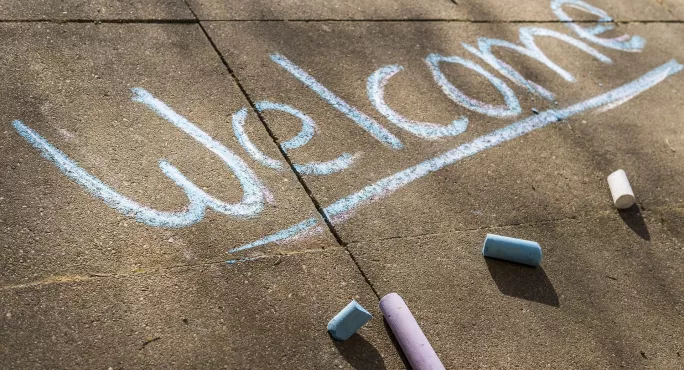It was about five months ago that I arrived in the UK, where I did not know anybody. I have to say I received a warm welcome from staff at the airport, but the only thing they were in charge of was putting a start to my asylum application.
After some weeks of getting along in a new city, the only things I had done were registering with different organisations like the NHS, and getting to know the city a little bit. At that point, one of the Iranians, whom I know from an Iranian community that I am part of, told me: maybe I am not allowed to work, but I am allowed to do volunteer work. To make a long story short, I became a volunteer for the Refugee Survival Trust (RST), which is based in Glasgow.
This was a great opportunity for me, firstly to improve my English and secondly to get to know the working environment of this country better. After some weeks of my internship at RST I was learning so much stuff - what they do at RST is not only spending money to help asylum seekers and refugees in need, but also giving us a chance to get along with new situations that we are facing.
Quick read: ‘Schools, teachers and students will welcome refugee children’
Excelling in school despite fear of deportation: The Glasgow teen who achieved outstanding exam results
A six-month wait for lessons: The fate of Syrian refugees in the UK
I was getting busy with my college classes so I was not able to do the internship every week, but one day I received a text from RST that mentioned there was going to be visit at St Fillan’s Primary School, in Glasgow, on 27 February. I had college that day but I really wanted to attend. I had to miss the morning part but I was there from 1-3.30pm.
We visited two classes that afternoon. The aim of the visit was to give an overview of the asylum-seeking and refugee process to school students and we had a presentation for that day. During the presentations we asked students some questions, like what is the difference between an asylum seeker and a refugee. They started to show what they know - some of them were writing stuff, some others were drawing about it and some students were discussing ideas in their groups.
Importantly to me, they had more knowledge about this stuff than I had expected. Some of them knew about an asylum seeker’s rights, some of them had a reasonable overview about differences between asylum seekers and refugees. I believe this shows that people here care about us, they grab information and even children know about them.
The other thing that had interesting responses from students was a question about what you would take with you if you could choose just three things, and some of them were really clever. I remember somebody asked something interesting, and it was if you take your phone you need to charge it. But the whole point is they were trying to understand that situation, and that meant a lot to me personally.
At the end of the presentation we asked them to give a conclusion, and what they made a point of was that they should not act in another way with refugees, but the best way is to see them like everybody else.
At that moment I felt at home. For me, home is somewhere that I do not receive different attitudes because of the country that I was born in - and when I heard this directly from the children it was a great moment.
Alireza Mogharrabi is an intern at the Refugee Survival Trust, which supports refugees and asylum seekers in Scotland. This article was originally published as a blog post on the trust’s website.
To organise a talk for your school or community group, contact community outreach coordinator Mahdi via community@rst.org.uk
